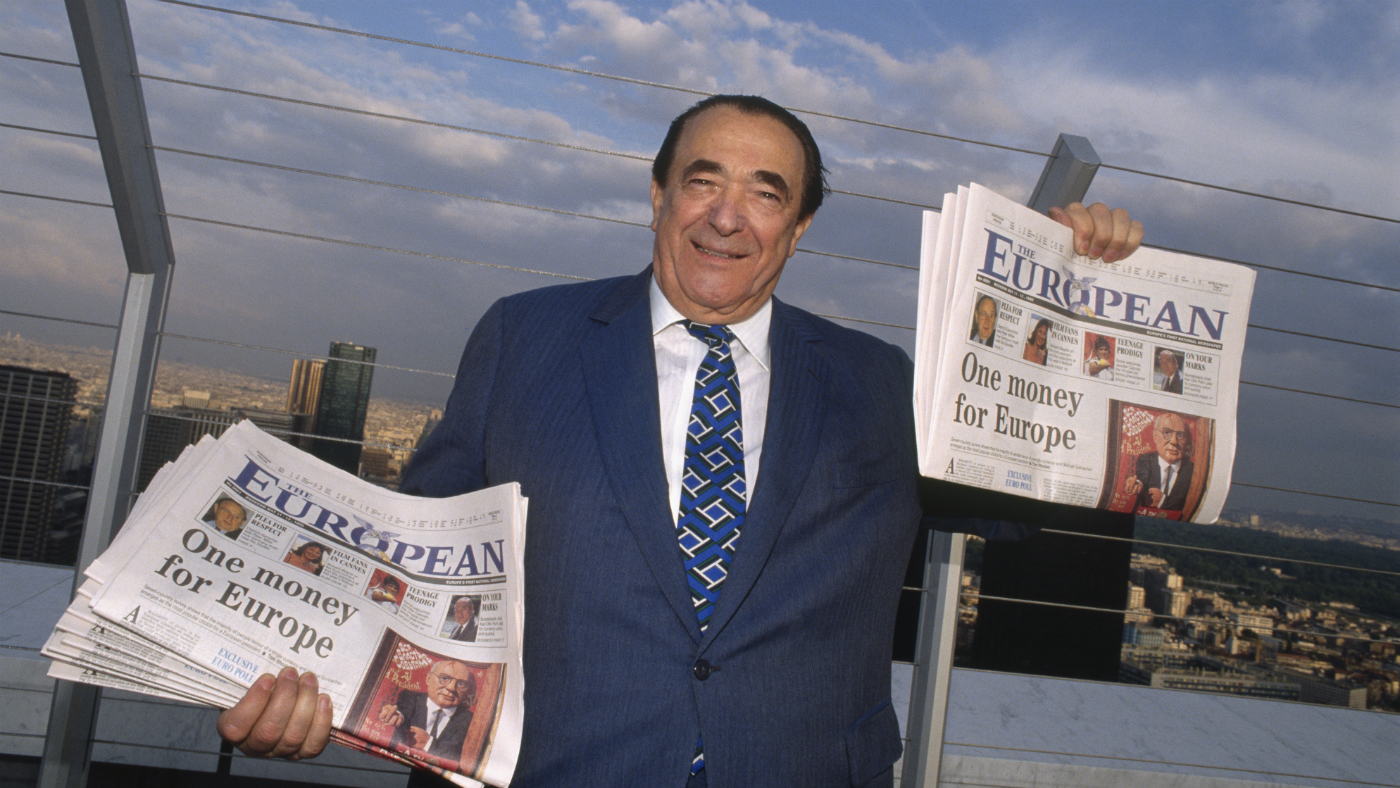How did Robert Maxwell die?
Media mogul’s sons speak out following more than 25 years of speculation and conspiracy theories

A free daily email with the biggest news stories of the day – and the best features from TheWeek.com
You are now subscribed
Your newsletter sign-up was successful
The sons of Robert Maxwell have revealed that the disgraced publishing tycoon was due to meet with figures from the Bank of England on the day that his dead body was found in the Atlantic Ocean.
Czech-born multibillionaire Maxwell, who owned the Mirror Group and was a Labour MP in the 1960s, was found floating naked in the sea on 5 November 1991, shortly after going missing from his yacht off the coast of the Canary Islands.
A subsequent inquest concluded that he had suffered a heart attack and drowned, and judges ruled out both suicide and homicide. However, his death “has been the subject of endless conspiracy theories since”, The Guardian says.
The Week
Escape your echo chamber. Get the facts behind the news, plus analysis from multiple perspectives.

Sign up for The Week's Free Newsletters
From our morning news briefing to a weekly Good News Newsletter, get the best of The Week delivered directly to your inbox.
From our morning news briefing to a weekly Good News Newsletter, get the best of The Week delivered directly to your inbox.
In an interview with The Times, Kevin Maxwell said that he had a “shouting match” with his father the evening before his death, because the mogul was “refusing to return to London from his yacht”.
“We needed to prepare for that meeting and I was a bit hacked off that he was going to leave it to the last minute,” he told the newspaper.
Prior to his death, Maxwell had taken out two loans from banking giant Goldman Sachs, one for £20m and another for £30m, and had failed to repay them.
“The bank started selling Mirror Group and MCC shares it held as collateral. On 4 November, Eugene Fife, a partner in the bank, called Eddie George, the Bank of England deputy governor, to warn him there would be a public announcement that Goldman had been selling the stock. Maxwell was summoned to the Bank to see George the next day,” The Times reports.
A free daily email with the biggest news stories of the day – and the best features from TheWeek.com
Following Maxwell’s death, it was revealed that he had also taken £460m from the pensions funds of his companies, leading to a lengthy court case against sons Kevin and Ian for their alleged roles in the fraud. Both were eventually acquitted, in 1996.
In 2003, Geoffrey Goodman, the former editor of the Daily Mirror under Maxwell, wrote in The Guardian that Maxwell “was also involved in passing intelligence to the west about the communist rulers” in Eastern Europe, and that “he was almost certainly being used as - and using himself as - a two-way intelligence conduit”.
“This arrangement included passing intelligence to the Israeli secret forces with whom he became increasingly involved towards the end of his life,” Goodman claimed, adding that despite initally agreeing that Maxwell’s death was probably an accident, he “no longer believes that he was not murdered”.
However, despite the financial and emotional strain that Maxwell was suffering - and the multitude of conspiracy theories - his two sons do not think he was murdered or that he killed himself.
Ian Maxwell said suicide was not in his father’s “make-up or his mentality”.
He added: “I don’t think any murder conspiracy stands up. So, for me, it’s an unexplained accident and I’m content to live with that.”
-
 Colbert, CBS spar over FCC and Talarico interview
Colbert, CBS spar over FCC and Talarico interviewSpeed Read The late night host said CBS pulled his interview with Democratic Texas state representative James Talarico over new FCC rules about political interviews
-
 The Week contest: AI bellyaching
The Week contest: AI bellyachingPuzzles and Quizzes
-
 Political cartoons for February 18
Political cartoons for February 18Cartoons Wednesday’s political cartoons include the DOW, human replacement, and more